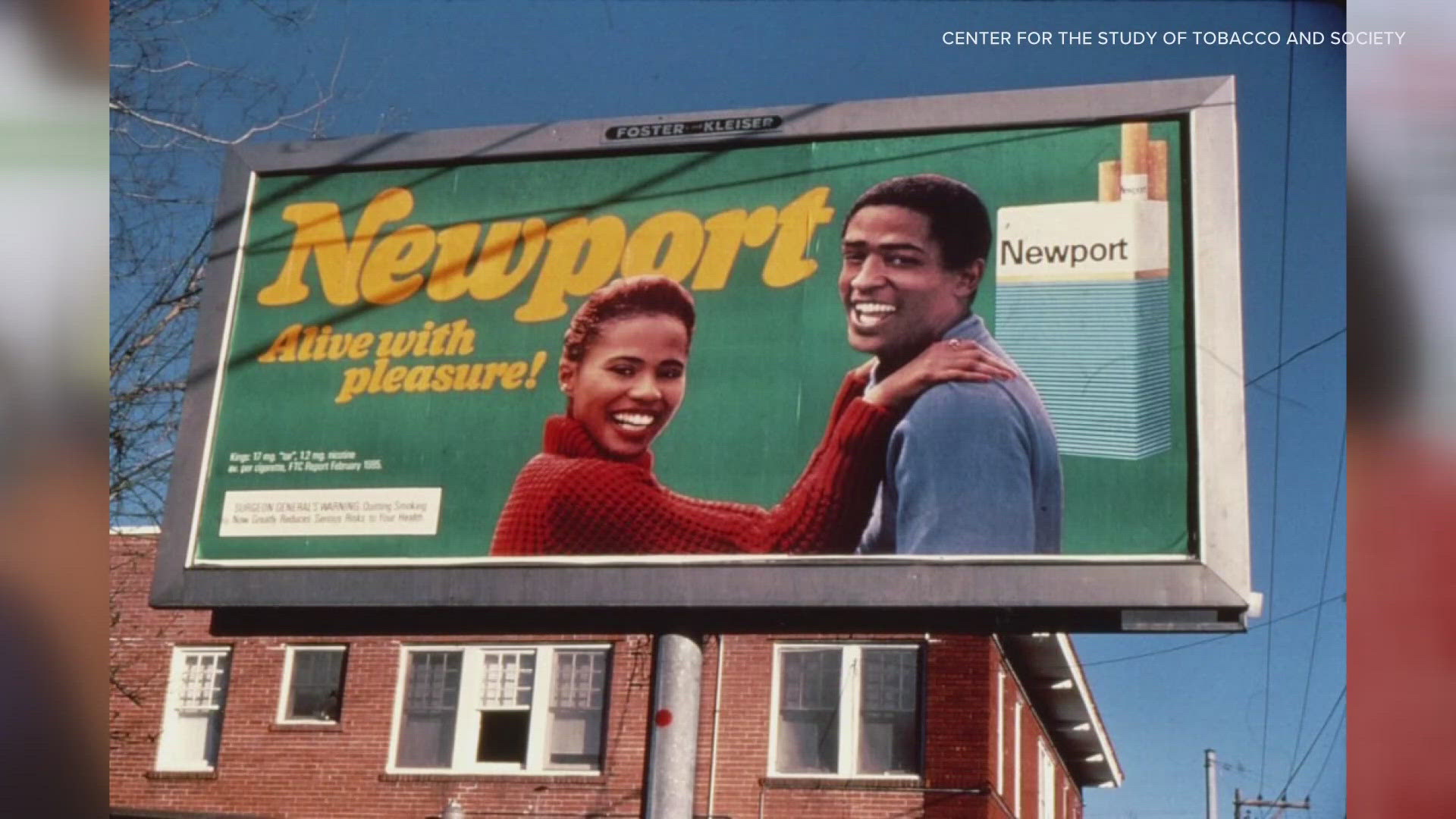TACOMA, Wash. — National studies show a vast majority of Black smokers are menthol smokers.
How exactly, the minty cigarettes became the choice of thousands of Black smokers nationwide has been an intentional effort made by the tobacco industry.
At Main Street Gas & Grocery in Tacoma's Hilltop neighborhood, you'll find the hot commodity isn't the fried chicken that emits a delicious aroma as soon as you walk in the door but something cooler.
Store clerk Sonu Singh doles out boxes of menthol cigarettes. Each box is packaged to show off just how minty and fresh its products are.
Having just bought a pack of Mavericks, Alaya Davis explained why she's stuck with menthols her entire smoking life.
"Menthol is going to go--" she took a long inhale, "in your system. A full flavor is going to go--" she took a short inhale, "you're not going to feel it at all."
Ernest Trent has smoked menthols since the beginning.
"I was nine," Trent said. "Growing up in the projects, it was one of the cool things to do."
At age 63, Trent said the 54-year habit is hard to kick.
Menthol, the chemical in menthol cigarettes itself isn't addictive. But the strong mint flavor masks the harshness of tobacco, allowing the smoker to inhale the nicotine deeper.
"Nicotine is one of the hardest drugs in the world," Trent said.
Since the '60s, tobacco companies have targeted the Black community for menthol advertising.
There were billboards and glossy spreads in Black publications like Ebony, Essence and Jet, emphasizing how the minty-cool cigarettes made you, literally, cool.
Brittany Grant works for the Campaign for Tobacco-Free Kids, an anti-smoking advocacy group working to protect young people from picking up a nicotine habit. Grant said the marketing in the past was so persuasive that thousands of older Black smokers continue to pay the price 60 years later.
"We know that yearly over 45,000 Black Americans die due to (disease) related to tobacco products," Grant said. "Yet, here's an industry putting money into spaces where they know it's not been beneficial to the individuals."
Grant has a personal reason behind her passion. Though not menthols, she's lost her family because of the tobacco industry.
"Unfortunately my grandfather died due to heart disease," Grant said. "No, he did not stop smoking."
Nationwide, research shows that between 1980 and 2018, menthol cigarettes were responsible for 157,000 Black lives lost to premature death.
For being only 12% of the U.S. population, Black Americans are carrying a disproportionate 41% of all deaths related to menthols.
This spurred the Washington State Department of Health to launch counter-programming, including the "They Think They Know You" campaign.
For a year, they've run print, TV and digital ads. They know people are paying attention by the number of clicks and views they've counted.
The Department of Health said their latest "run" from mid-May to June 9 successfully made 3.9 million digital impressions.
Kat Torres also helped with that campaign by sharing her personal journey with menthols. She was a speaker at one of the panels organized by the Department of Health, Converge Media and the Anchor Group, a PR firm.
Torres started smoking at age 18.
"Every party you went to, people were smoking," Torres said. "If, when I was growing up, what is out there now to teach you about how bad tobacco is for you, I don't think I would have ever started smoking."
It took years before Torres noticed the toll menthols took on her health.
"I got really sick at some point and ended up going to the hospital," Torres said. "They didn't know what was wrong with me. It wasn't the flu, and they discovered it was Crohn's disease."
Thirty years ago Torres made a decision that most likely saved her from a lifetime of medication.
"When I quit, it was probably the best thing I could have done for myself," Torres said.
Putting down menthols after 20 years put her Crohn's disease into remission.
"They finally said, 'Hey, we don't see anything anymore,'" Torres said, referring to a letter of good news she got from her doctor. "'So you're good, you're good to go,' and I'm just like yes. Thank you, Jesus."
Torres is hoping her story can inspire others to leap, especially those who are younger.
"I hope that this reaches a lot of the youth out there because they're that next generation coming up and it may look cool - it really isn't cool," Torres said. "Don't start, if you haven't and if you have, then stop."

